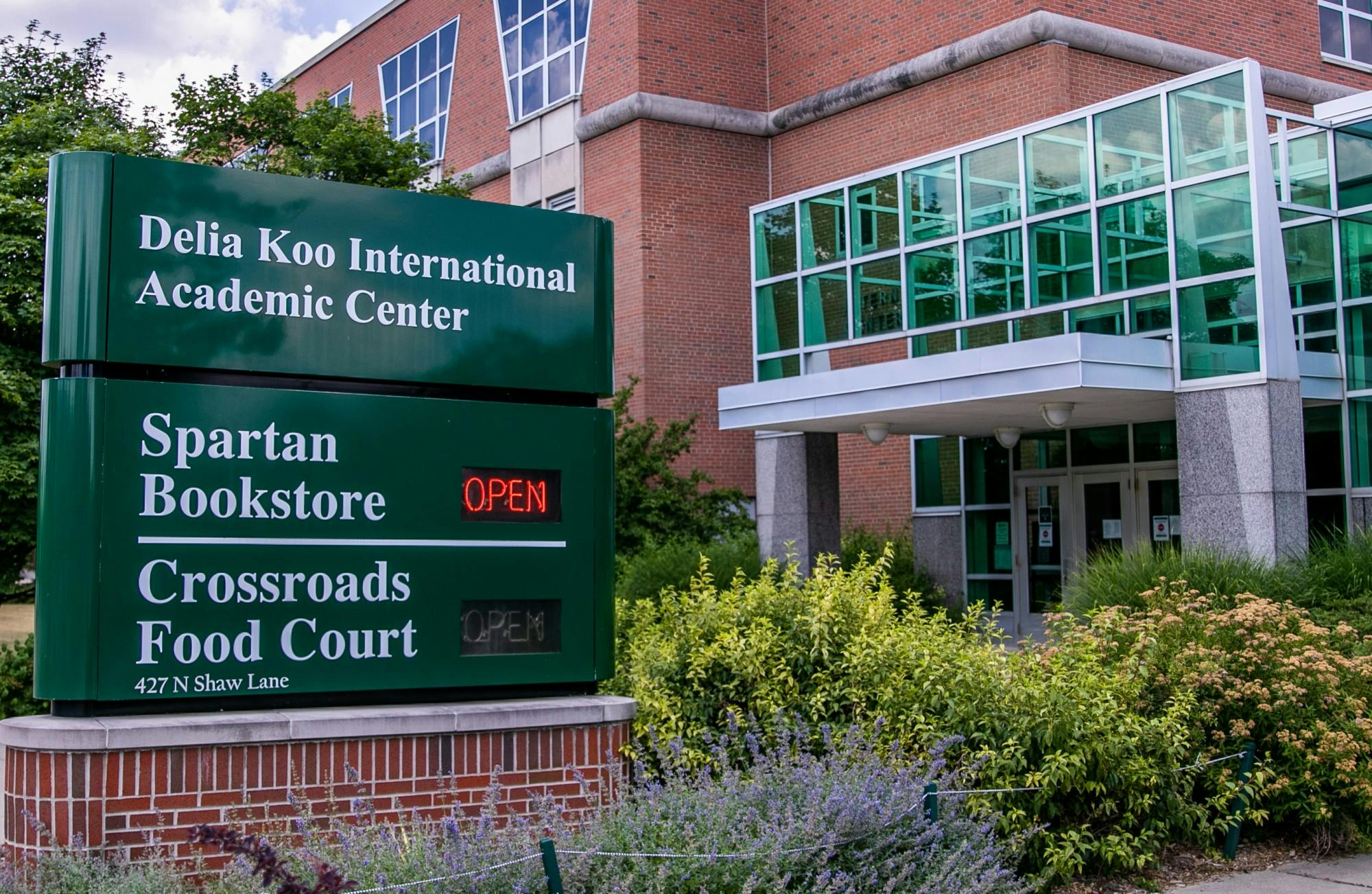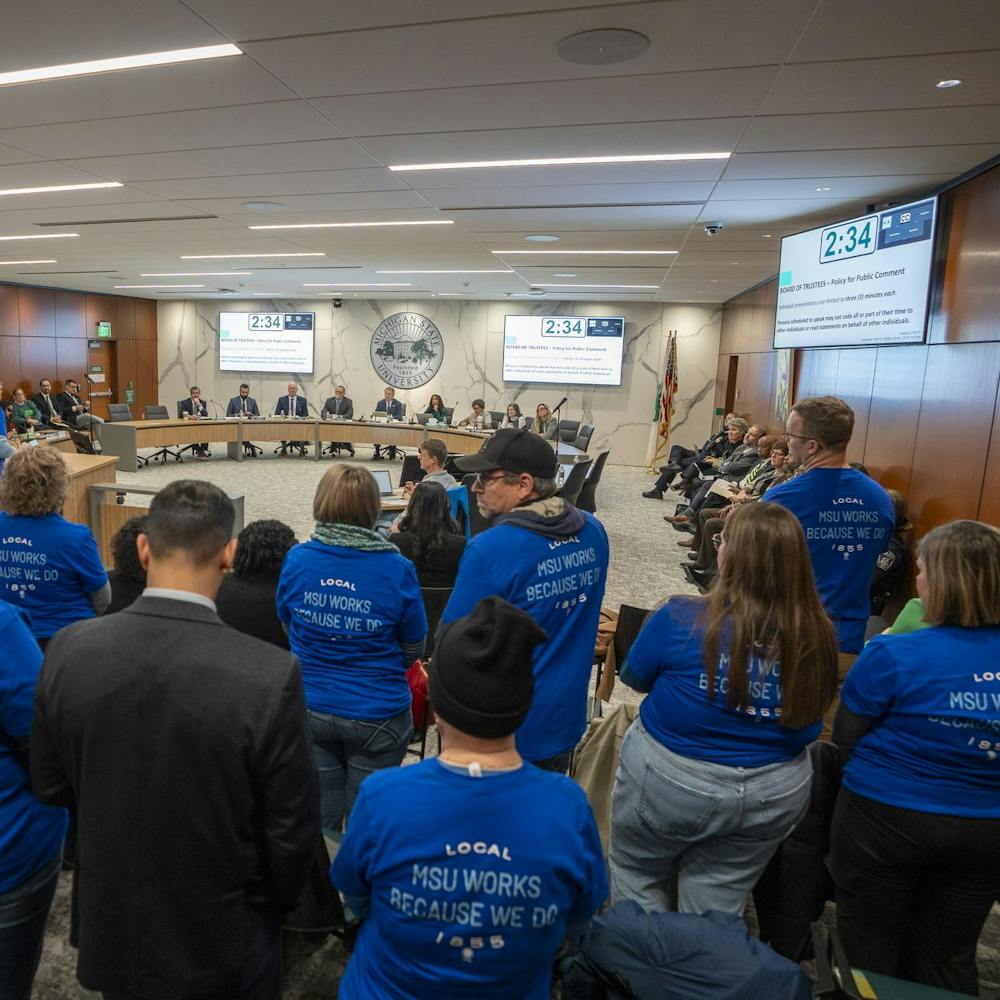Lebanon is currently experiencing social, political, economic and health crises simultaneously.
On Tuesday, Aug. 4, a devastating explosion in the port of Beirut, which an article by CNN reported had registered a 3.3 magnitude earthquake, demolished the city's infrastructure and injured thousands.
Map by The State News Staff.
Survivors have been left overwhelmed with grief as many have lost their homes, loved ones, jobs and even access to basic necessities. According to an article by U.S. News, Lebanon's president declared a two-week state of emergency.
Lebanon's past and present
Lebanon is a Middle Eastern country whose history is filled with destruction due to a 15-year civil war, conflicts with their neighboring country of Israel and periodic terrorist attacks.
The port of Beirut, most commonly referred to as the Paris of the Middle East, is like the front door for imported goods such as wheat and medical supplies.
According to a post by the Slow Factory Foundation (SFF), Lebanon imports over 80% of everything it consumes, while Beirut handles 60% of all of those imports. With the destruction to the port, access to basic necessities is little to none.
In October 2019, Lebanon broke out into "thawra," or "revolution." According to another post by the SFF, Lebanese citizens united across party and sectarian lines have gathered in protest for the last 10 months against a nation plagued by corrupt political elite, dysfunctional national institutions, constant electoral fraud, inadequate access to electricity and water, absence of basic services like waste management and high rates of unemployment.
Since the start of these protests, according to a post by Other Collective (OC), more than 333,000 people out of a total population of roughly 6 million have already lost their jobs and more than half of the country relies on food banks.
According to an article by Business Insider, the price of food has increased over 50%, while the Lebanese pound has lost over 80% of its value, and the country's inflation rate is the third highest in the world.
To put it into simple terms, OC created an example that said, where two pounds of red meat used to cost $9, it now costs around $43, or 65,000 Turkish lira.
The people of Lebanon are on the brink of starvation and fearful of repeating the 1915-18 famine that killed half of the population.
The World Bank estimated in 2019 that nearly 50% of Lebanese citizens live below the poverty line, though that could soon reach 75%, and an article by Forbes stated that the country's top 1% earns 25% of the country's gross domestic product (GDP).
This widespread scarcity of food, tied together with the struggle of regional medical institution leaders like the American University of Beirut Medical Center (AUBMC) and the way Lebanese people are forced to live, is raising concern over a second wave of coronavirus, as it's known that people with compromised immune systems and lack of resources are far more likely to die.
Input from students
The Michigan State Lebanon Student Association (LSA) currently has around 43 active members.
Human biology senior, Arab Cultural Society (ACS) President and LSA member Mohamed Mallah, said that the LSA is an organization that works to make Lebanese students feel welcome on campus and more in tune with their ethnicity while surrounded by a large majority of white Americans.
He said his other organization, the ACS, is similar. The only difference is that the ACS is broadened to cover Arab culture across the world, while the LSA is solely for Lebanese culture.
Support student media!
Please consider donating to The State News and help fund the future of journalism.
ACS is also a part of MSU's Council of Racial and Ethnic Students and Council of Progressive Students, or CORES and COPS. Mallah said that, as president of ACS, he likes to include input from LSA during meetings with matters of diversity and inclusion to be sure they get the representation they deserve.
"I know some people like to stereotype the whole entire Middle East as this slum place where it's all deserted, but Lebanon is no where near like that," Mallah said. "I've been to Lebanon multiple times in my life and, not even being biased, it's actually one of the most beautiful places I've ever been too, and I've been to a lot of places around the world."
Mallah thinks it's important that people learn and know about the crises in Lebanon because they need to open their eyes to what's happening around the world.
"What happens around the world also comes back to affect us, our economy and social status," Mallah said. "If America makes a good move toward stuff like this, we could actually make a better name for ourselves. Considering how we're looked at as a powerful nation, we should act like a powerful nation and provide resources to countries like this who need our help. It's not only a choice, but a responsibility we have as American citizens to help out in situations like this."
Business-admitted sophomore, ACS Vice President and LSA Event Coordinator Alan Saleh, said that his main goal while being involved in both the ACS and LSA is to spread awareness because he believes that the plight of Arabs is not mentioned enough on campus and that there is a large stigma as people don't know enough about the culture.
"I want to reaffirm those ideas on campus, especially through Lebanese culture," Saleh said. "I do definitely embrace my Lebanese roots, as well as my Arab roots, and I think educating people and breaking the barrier between Islam and Arab culture is a huge thing for me."
The LSA is under the umbrella of what makes up the ACS, Saleh said. They are currently partnering with other schools and sponsors in Michigan to help raise funds for Lebanon.
"The things going on in Lebanon need to be addressed worldwide," Saleh said. "I feel like if it was a major city like London, there would be a lot more attention focused to it. But, since it's Beirut, Lebanon, it's not really that well known. It's not like the other big Middle Eastern cities or countries, and I feel like we don't stand out as well as we should, so people are diverting their attention to other things."
How you can help
Right now, Lebanon needs the international community and signing petitions only goes so far.
Donating in currency other than Lebanese pounds, amplifying the voices of the Lebanese people both in the country and globally, sharing news and stories about the crises in Lebanon on social media platforms and staying educated and up to date on the news coming from both the city of Beirut and the country of Lebanon are some ways domestic students can help the country.
Many activism-centered Instagram accounts have created websites and documents with links and tags to countless different funds and organizations. Also, there's a spreadsheet of resources made for volunteers and victims in need.
Discussion
Share and discuss “What you need to know about the crisis in Lebanon” on social media.








